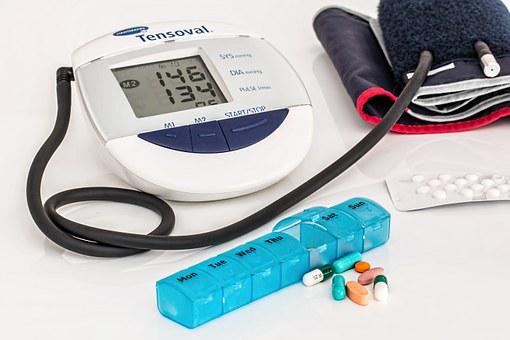Hypertension – A silent Killer
Published On: 17 May 2022
Auther Name: Omnyk.com

Hypertension is nothing but an increase in blood pressure. In simple words, it is the force that blood exerts on the walls of arteries. Sounds simple? Yes, going by the definition, it seems harmless and easy to tackle but it is a lot more precarious and fatal than what it just seems to be. Hypertension affects almost one in every three Indian adults. Hypertension is one of the leading causes of cardiovascular diseases and disabilities related to it.
According to WHO, hypertension impacts approximately 1.23 billion people between age group 30 to 79 years and 46% of people affected are unaware and less than 42% are diagnosed and treated. Two-third of the affected population lives in low and middle income country.
Non-communicable diseases cause nearly 63% of deaths in India, of which 27% are attributed to cardiovascular disease which affects 45% of people in the 40-69 age group. According to the World Hypertension League, more than 50% of the population affected by hypertension is unaware of the situation.
Blood pressure is the force of circulating blood on the walls of arteries. A controlled amount of pressure is essential for the circulation of blood to various organs of our body. The problem arises when the pressure becomes excessive. The increase in blood pressure can be primarily because our heart is pumping blood at a rate faster than what the body requires.
A temporary increase in blood pressure can be seen when a person engages in exercise, physically challenging work, or is under stress. This increase in blood pressure is temporary and gets back to normal within a few minutes. The problem arises when blood pressure stays up beyond the normal limit while performing day-to-day activities. Hypertension neither has any signs nor symptoms which makes it difficult for the affected person to understand if he/she has landed in a situation of hypertension or how long the person has been hypertensive until it reaches a life-threatening stage. Hence, it is notoriously known as “THE SILENT KILLER”.
Measuring blood pressure is no rocket science, especially in today’s time where sphygmomanometers (BP machines) with high accuracy are available. However, how many healthy ones monitor their blood pressure regularly just to monitor our health. In the majority of cases, diagnosis of hypertension is accidental as it shows no signs and symptoms. The best is to monitor oneself at regular intervals to ensure that all is well.
Prehypertension, earlier classified as Elevated blood pressure, don't require treatment or medicine. Prehypertensive people should constantly monitor themselves to monitor the fluctuation and manage it timely. For people, who can’t monitor themselves, remote monitoring can be done by their family members. In today’s tech savvy world, remote monitoring is the revolutionary technology that can be used.
Remote monitoring is especially helpful in management of Stage I and Stage II hypertension. These technologies can play a pivotal role in understanding when a patient is landing in a hypertension crisis.
Hypertension once diagnosed shouldn’t be ignored. When symptoms do occur, they can include early morning headaches, nosebleeds, irregular heart rhythms, vision changes, and buzzing in the ears. Severe hypertension can cause fatigue, nausea, vomiting, confusion, anxiety, chest pain, and muscle tremors. (Source: WHO.)
There are various reasons for a person becoming hypertensive. Age, obesity, sedentary lifestyle, tobacco consumption, alcohol, lack of sleep, high sodium intake, low potassium intake, low vitamin D levels, constant stress, pregnancy, hormonal imbalances, and genetics are some of the reasons. Uncontrolled hypertension can lead to heart attack, myocardial infarction (MI), stroke, impact functions of kidneys, vision loss, impact memory, and heart failure.
Dr. Krishna Kishore, an eminent cardiologist from Coimbatore says that a healthy lifestyle is key in managing this silent killer. Healthy food, regular exercise, meditation, and a good work-life balance will not only help in managing but preventing hypertension and also improve the overall quality of life. Regular exercise not only makes one healthy but also reduces stress levels. Indulging in meditation, and slow and deep breathing exercise has a huge impact on reducing stress which is a root cause of a lot of health problems.
He also suggests over the past decade hypertension has become a leading health concern.Remote monitoringcan help provide data driven insights on the trend of fluctuation of reading and can help in better management of hypertension.
“Prevention is better than cure”. We all have read that. It’s time, we make our health the focus of our lives and prevent hypertension. Dr. Kishore mentions that technology has been changing our lives on all fronts then why shouldn’t doctors take advantage of it in helping their patients in a better way.
Dr. Krishna Kishor mentions that in the past few decades hypertension has taken the shape of an epidemic and the majority population don’t even realize about their deteriorating condition. To know more about heprtension and associated risk, join us in an insightful discussion with Dr. Krishna Kishor on 17 May 2022, 5:00 - 6:00 pm.



